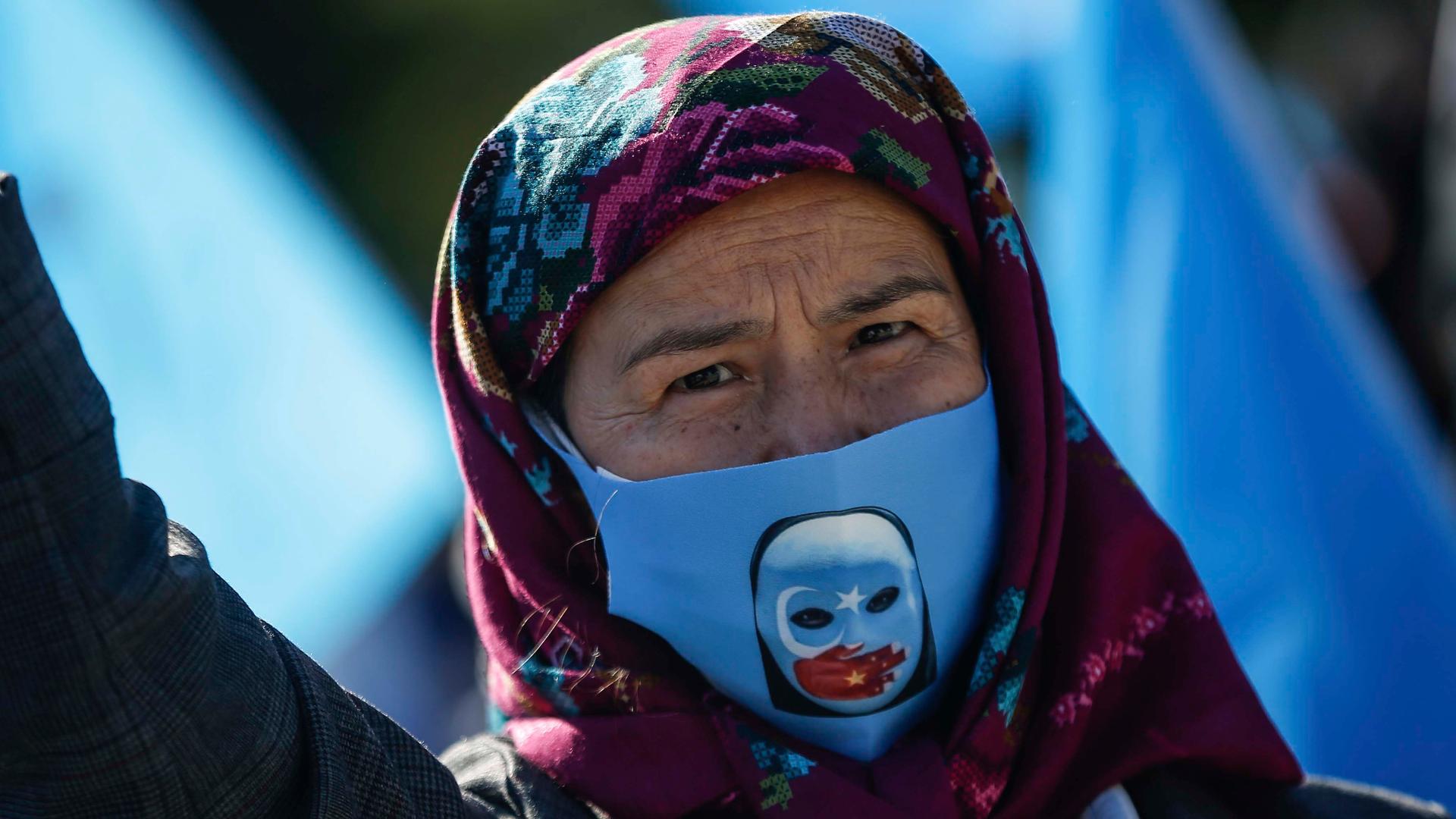US bans cotton products from China’s Uighur region over forced labor concerns
The Trump administration is taking a step to crack down on some of China’s worst human rights abuses.
The US is now banning imports of cotton and tomatoes from China’s Xinjiang region, a semi-autonomous region in northwestern China where Beijing has placed as many as one million Muslim Uighurs and other majority Muslim populations in so-called “reeducation camps.”
The US government and human rights groups believe that China is using forced labor to pick cotton and tomatoes. To learn more about the ban and its implications of it, The World’s host Marco Werman spoke to Allison Gill, the forced labor program director with Global Labor Justice International Labor Rights Forum.
Marco Werman: Remind us briefly, who are the Uighurs and what’s their status in China?
Allison Gill: Uighurs are an ethnic majority population in the Xinjiang Uighur Autonomous Region region, which is a Chinese colonial term for the region, though Uighurs refer to it as East Turkistan or the Uighur region. And they and other majority Muslim and Turkic peoples in the region have been under repressive policies for years.
China has termed them “terrorists” and has for decades sought to assimilate them into the Chinese population, into the Han population, through really coercive methods: stripping them of their rights to speak their language, to have privacy in the family, taking children to locked kindergartens, separating family members, sending Uighurs outside of the Uighur region to work, limiting birth, forced sterilizations — really, crimes against humanity on a mass scale.
So, this ban seems to be pretty important. What are some of the implications that will come out of it? I mean, for cotton, I have to imagine this is going to be a big deal for the garment industry.
That’s right. This is a huge deal because China produces 20% of the world’s cotton. Most of that is produced in the Uighur region. In addition, a huge amount of textile production happens in the Uighur region. And, you know, we talk about supply chains in the garment industry — they are really supply webs. So, cotton moves from the fields to gins to spinnerets, where it’s turned into thread and yarn, to textile mills where it’s made into fabric, and then to factories where it’s made into garments. These exist in the Uighur region in China as well as elsewhere. So, these goods are moving across country lines. So, you might buy a shirt that’s made in Vietnam, but it could have inputs that come from this region, given how much cotton and how much textile production happens there. So, this is huge.
Related: A Uighur poem of ‘unimagineable suffering’ travels from Chinese internment camp to New Jersey
China is pretty insular. How do you think the US government is going to be able to enforce this ban?
It’s now up to companies to ensure that the goods that they are importing into the US don’t contain any cotton products from the Uighur region. So, they need to map their supply chains and they need to disengage so that their goods aren’t stopped at the border. I mean, the entire garment supply chain is going to have to be doing some serious work to look at their sourcing practices and really redirecting their sourcing to other places.
What has generally been the Trump administration’s view of what’s been happening in Xinjiang? Have they brought enough pressure to bear? And do you think Joe Biden will take a ban like this and do more?
Despite the many problems with the Trump-China policy, the Trump administration has taken some really important steps on Uighur forced labor and on other abuses against Uighurs. And so, we’re hopeful that the Biden administration will continue to pursue those policies. This is about human rights and forced labor. And this cannot be tolerated in this century, that there is a crime against humanity on a mass scale happening with a major economy. And we’re used to taking these kinds of steps on smaller countries. But China is a global player and they have a massive global economy. So, this is really a different beast altogether.
This interview has been edited and condensed for clarity.
We want to hear your feedback so we can keep improving our website, theworld.org. Please fill out this quick survey and let us know your thoughts (your answers will be anonymous). Thanks for your time!
